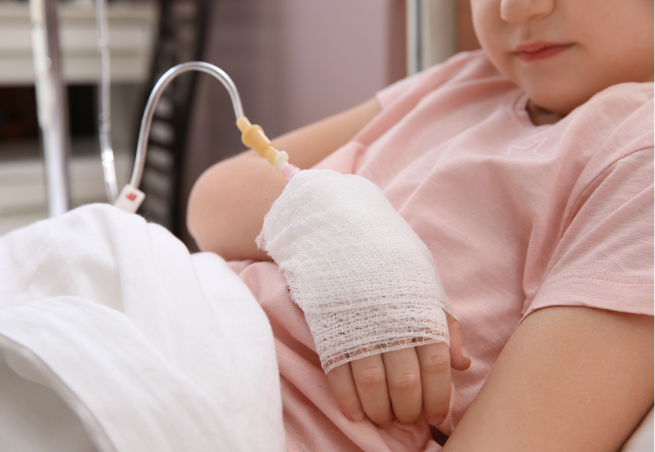Understanding when your child is ill can be difficult. They can’t always explain what’s bothering them and often aren’t able to answer medical questions. Treating children can also be challenging because they aren’t just small adults. Pediatric critical care physicians are experts at diagnosing and treating kids of all ages.
Who Provides Critical Care to Children?
If your child is sick or injured and needs advanced care beyond the emergency department or general pediatrics unit, they may need to be monitored in a pediatric intensive care unit (PICU). There, a hospital-based physician with a clinical focus on pediatric critical care will provide the specialized care that’s needed.
Pediatric critical care specialists (sometimes called pediatric intensivists) are medical doctors who have earned a medical degree and completed an additional three years of pediatric specialty residency training and three or more years of fellowship training in pediatric critical care. They treat children from birth through the teen years and coordinate care among critical care providers, specialists, nurses and other health care providers.
“Because they only treat kids, pediatric critical care specialists know how to put children at ease as they examine and treat them,” said Thomas Truman, M.D., medical director of Pediatrix® Critical Care of Florida and specialty medical officer for pediatric critical care medicine. “In addition, they know how to use medical equipment designed specifically for children. In short, pediatric critical care physicians focus solely on caring for very sick children. Their advanced training and experience prepare them to give children in the PICU the specialized medical care they need.”
Why Would My Child Need the PICU?
There are a variety of illnesses and injuries that may require a stay in the PICU. They include unstable, life-threatening conditions such as:
- A major bacterial infection or virus, such as severe cases of pneumonia or meningitis
- Blood disorders
- Complications due to cancer
- Diabetic ketoacidosis
- Kidney or liver failure
- Serious injuries from accidents involving cars, bicycles, ATVs and other vehicles
- Severe asthma attacks
- Severe heart and lung disease
While working in the PICU, pediatric critical care specialists:
- Thoroughly monitor patients
- Adjust the plan of care when needed
- Order tests and treatments
- Supervise children on ventilators
- Use special catheters to treat conditions involving the blood vessels or heart
- Manage patients’ medications
How Can I Find a PICU?
Most major hospitals have PICUs. These hospitals usually are children’s hospitals, university medical centers or large community hospitals. Your pediatrician will know which hospital near you has a PICU. If you live in a rural area, your child may need to be transferred to a medical center with a higher level of care.
For example, the Pediatrix Critical Care of Louisiana team in the PICU at Our Lady of Lourdes Women’s and Children’s Hospital in Lafayette is the only unit of its kind in the region.
“Our Lady of Lourdes is committed to having a trained, dedicated staff of providers that are equipped to handle the most severe pediatric conditions,” explained Reynaldo dela Rosa, M.D., medical director of the PICU. “Our team treats patients with a variety of conditions, from respiratory problems and neurological issues to traumatic injuries, cancer and more.”
The multidisciplinary PICU team performs daily rounds to discuss each patient’s condition, including what happened overnight and the plan of care for the upcoming day. They get input from the child’s family so they are part of the decision-making process.
Having a local PICU enables children who need advanced care to stay close to home. They benefit from having both excellent medical care and family support needed to encourage the healing process.
“We have access to most of the subspecialists that a child in the PICU could need,” Dr. dela Rosa added. “Then, after discharge, parents can bring their children back to this campus for follow-up care instead of driving two or three hours to another hospital.”
Preventing a Stay in the PICU
You can’t predict when your child will get injured or develop a serious medical condition. However, there are some seasonal viruses — flu, COVID-19 and respiratory syncytial virus (RSV) — that mostly circulate in the fall and winter months. RSV is dangerous for young infants and children, especially if they were born prematurely or have chronic lung or heart conditions. Symptoms can include fever, wheezing, trouble breathing and tiredness. While most people with RSV recover without hospitalization, very severe cases can require a PICU stay. Ask your pediatrician which vaccines are best for your child to prevent infection.
If your pediatrician suggests that your child should be cared for by a pediatric critical care specialist, ask if the specialist is board-certified in pediatric critical care medicine by the American Board of Pediatrics. For help finding care, visit our website.
